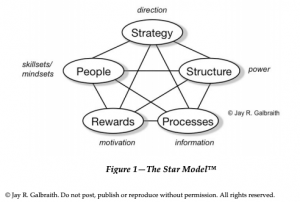Digital Transformation is having a real moment in industry, in part due to the huge changes as a result of the pandemic of 2020. But as usual, there’s little agreement about what it means. In contrast to previous “transformations” such as ITIL, Lean, Agile, or DevOps, digital transformation doesn’t simply mean automating processes, becoming more efficient, offering your existing products and services online, creating an app, or shifting your infrastructure to the cloud. Even the annual State of DevOps Reports are beginning to focus more on digital and organisational transformation rather than a specific focus solely on DevOps.
What is digital transformation?
True digital transformation means transforming everything about your organisation in respect to people and technology towards an engaged, agile, happy and high performing organisation. DevOps was (and still is) one key aspect of this approach. The only way to truly achieve organisational resilience or enterprise agility is to fundamentally transform the foundations of the organisation. The list below describes just some of the aspects of digital transformation and the areas to address
- Culture, values and behaviours
- Practices and ways of working
- Communication structures
- Hierarchies
- How financial budgets and funding models are managed
- How teams and people are measured and incentivised
- How and what metrics are used
- Cloud native architectures and practices
- Moving from projects to products
- Team structures, topologies and interactions
- Recruitment and onboarding/offboarding practices
- Value stream alignment
- Breaking down silos
- Embedding the ability to change and adapt
- Reducing cognitive load
- Psychological safety in delivery teams, senior leadership teams and functional teams
- IT services and operational technologies
- Facilities, colocation, office layouts (especially options for open-plan or not)
- And many many more – in fact, here is an (incomplete) list of organisational factors relevant to transformation.
Why digital transformation?
What’s your organisational goal? Maybe it’s increasing your speed to market for new products and features, maybe it’s reducing risk of failure in production and improving reliability, or maybe it’s to keep doing what you’re doing but with less stress and improved flow. If you’re only looking to reduce costs however, digital transformation is not for you: one of the core requirements for a transformation to succeed is for everyone in the organisation to be psychologically safe, engaged and get behind it, so reducing costs and potentially cutting workforce numbers is not going to create that movement.
What is Enterprise Resilience?
Resilience Engineering is a decades-old field of applied research that focusses on the capacity to anticipate, detect, respond to and adapt to change. Organisational “robustness” might mean being able to withstand massive disrupting events such as pandemics or competition, but enterprise agility represents the resilience engineering concept of true resilience – not just “coping” with change, but improving from it and future challenges. I believe that Resilience Engineering is the direction that DevOps is evolving into.
Why is digital transformation so complex?
Despite many attempts to simplify the concept of digital transformation, it remains one of the most challenging endeavours we could embark upon.

I’m not a huge fan of over-simplifying organisational complexity into components, especially models such as Galbraith’s Star that place “people” as one of the components (and certainly not models that consider anything other than people to be the primary element). Whilst models such as this may help people compartmentalise the transformation challenge, in almost every case, the fractures between the various components don’t actually exist in the way they’re presented.
Organisations are not simply jigsaw pieces of technology, tools, and people that react and function in predictable ways. As the Cynefin model shows us, systems exist in multiple different states. Complex states, such as the state in which most sociotechnical systems (the organisations that we work in) reside in, require a probe-sense-respond approach that applies built-in feedback loops to determine what effect the intervention you’re working on is having. Everything in digital transformation is an experiment.

It’s also important to avoid localised optimisation – applying digital transformation approaches to one part of an organisation whilst ignoring other parts will only result in tension, bottlenecks, high-friction and failures elsewhere. We must observe and examine the entire system, even if we cannot change it. Ian Miell discusses here in this excellent piece why we must address the money flows in an organisation.
Likewise, changing one small part of a system, especially a complex system, will have unintended and unanticipated effects elsewhere, so a complete, holistic view of the entire organisation is critical.
Digital transformation is a series of experiments
This is why, if anyone suggests that there is a detailed “roadmap”, or even worse, a Gannt chart, for a digital transformation project, at best it’s naive and worst, it’s fiction. Any digital transformation process must be made not of a fixed plan, but a series of experiments that allow for iterative improvements to be made.
When you think about digital transformation in this way, it also becomes clear why it will never be “finished”. Organisations, like the people they consist of, constantly change and evolve, just like the world we operate in, so whilst digital transformation is undoubtedly of huge value and an effective approach to organisational change, you will never, ever, be “done”.
In my role as Transformation Lead at Red Hat Open Innovation Labs, we use the Mobius Loop approach to provide structure to this experimental, feedback-based, continuous improvement and transformation journey. If you’re interested in digital transformation, DevOps, Psychological Safety and how you can begin to set transformation in motion in your own organisation, get in touch.


